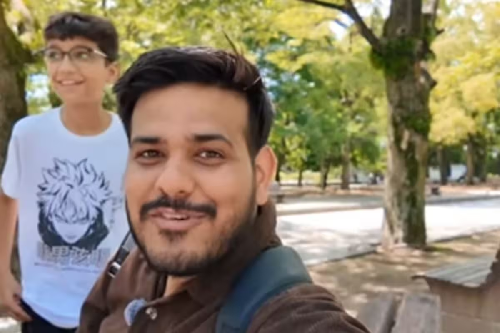A video of students from a prominent Lucknow school on a school trip to Japan has taken social media by storm, generating a wide range of reactions and sparking a debate about educational excursions. The viral clip shows an Indian content creator’s surprised reaction upon learning that the students from City Montessori School (CMS) were in Japan, having paid ₹3.5 lakh each for the trip.
The video, which has been shared across multiple platforms, features students from Class 5 to Class 11 casually discussing their 10-day international trip. One student is heard mentioning that the school is also planning future trips to Germany and Vietnam, further astonishing the content creator. The clip has resonated with a large audience, with many drawing a nostalgic comparison to their own school days when trips were limited to local destinations like the India Gate.
The video has ignited a flurry of comments online, with users expressing a mix of awe, envy, and criticism. Some viewers lauded the school for providing students with such a unique opportunity for global exposure, arguing that these experiences are invaluable for a child’s development and worldview.
Conversely, a significant portion of the comments highlighted the stark economic divide, with users pointing out that a trip costing ₹3.5 lakh is a luxury inaccessible to most. Comments like “In that amount, I pursued my Lower Kindergarten (LKG) to Class 12” and “Moral of the story – if you have the money, everything can be yours” reflect a sentiment of shock and the reality of expensive private education in India.
While the video has become a topic of national conversation, it underscores a growing trend among affluent Indian schools to offer international trips as part of their curriculum, moving beyond traditional local excursions. The viral footage has become a cultural touchstone, highlighting the changing landscape of education and the increasing disparity in opportunities available to students based on their socio-economic backgrounds.







